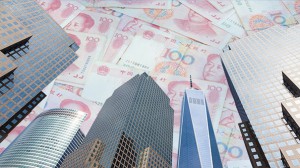 The United States’ commercial real estate market foreign capital income has been significantly increasing lately. In a recent article written by Brian Ward from the National Real Estate Investor’s online data page, the company has been making note on long-term factors that impact
The United States’ commercial real estate market foreign capital income has been significantly increasing lately. In a recent article written by Brian Ward from the National Real Estate Investor’s online data page, the company has been making note on long-term factors that impact
the U.S.’s real estate market as the economy shifts into a recovery mode. Here are some points they noted:
First, foreign investors are making decisions with an informed view of the long-term effects of commercial real estate investments. According to Ward, “As we enter a mature part of the real estate cycle, foreign investors are becoming more conservative with their commercial real estate investments in the U.S.,” (Ward, Five Foreign Capital Trends in the U.S. Commercial Real Estate Market). Though the use of the word “conservative” may sound like foreign investors are becoming less active in the U.S. market, it actually means quite the opposite. The shift from yield driven to capital preservation driven is aiding in debt reduction and investors are recognizing the positive effects of long-term investments. Places in New York like the Waldorf Astoria and the Baccarat hotel are two prime examples of real estate with more equity and long-term appeal.
The next observation Brian Ward made was about new markets in the U.S. becoming increasingly popular. Instead of investors just looking at New York and San Francisco, he writes, “We are seeing foreign investors get much more active in alternative mar

The Seattle Skyline
kets such as Seattle, Boston, Washington, D.C., Chicago, Dallas, Denver, and Atlanta. This is a function of the basic global challenge in today’s commercial real estate markets,” (Ward, Five Foreign Capital Trends in the U.S. Commercial Real Estate Market).
Lastly, Ward noted the change in technology, lifestyles, and careers. With an increasing desire to invest in commercial real estate market that are associated with technology and biotechnology, cities like Boston, Seattle, and San Jose are being highly regarded by foreign investors. Though New York will still most likely remain at the top of this hierarchy, more and more cities are becoming aware of the desire for various technology businesses.
Ward concludes his article by stating that, “It is truly an exciting time in the U.S. for foreign capital in commercial real estate – all is trending upward,” (Ward, Five Foreign Capital Trends in the U.S. Commercial Real Estate Market).